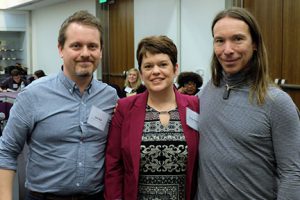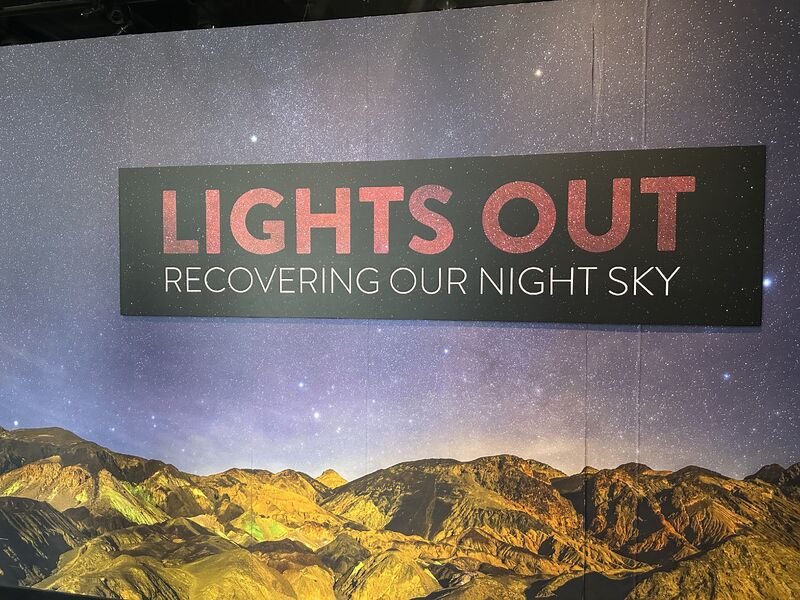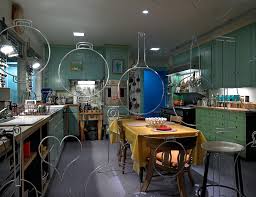By Professor Tiffany Banks On Tuesday, September 30th , students from my COMM 108: Foundations…

Today we began our actual museum visits, what our Fellows have been preparing for since the start of the semester.
As is our tradition, our opening session was a panel discussion where various aspects of this year’s theme, American Ingenuity, Invention and Enterprise, were introduced through the perspective of our three speakers.
Getting us started was Tricia Edwards, Head of Education for the Lemelson Center for Invention and Innovation at the NMAH. She focused these tenets: 1) everyone is inventive, 2) invention is all around us, 3) invention is a process, 4) invention and innovation have been and continue to be an important part of our American history, 5) invention is interdisciplinary and 6) invention can happen anywhere but environment matters.
She was followed by Doug Herman, Senior Geographer at the NMAI, whose presentation on innovation and invention of Pacific Islanders and the lasting influence of their achievements in canoe building, as well as developing cordage and sails from non-traditional materials, many of which last to this day. Given that the Polynesian Islands are largely devoid of many of the materials traditionally used, he reminded us all of the old adage, “necessity is the mother of invention”. The slides he showed and objects he shared added to our appreciation.
Our last speaker was Joshua Bell, Curator in the Department of Ethnology, specializing in Issues of Globalization. His presentation on how cell phones are changing the way we are interacting with each other and the world provided a look at a contemporary issue of invention and innovation as he covered everything from reminding us that the ingredients for making a cell phone require elements from many parts of the world, to how they have been used as instruments of social change in ways good and bad, to the development of secondary industries that have allowed for the rise of third party vendors in the business of cell phone repair. He challenged the group to consider how objects shape human behavior, often without our awareness.
Following a lively question and answer session with our panelists, the Fellows spent time in the Places of Invention exhibit and the Spark Lab.





This Post Has 0 Comments